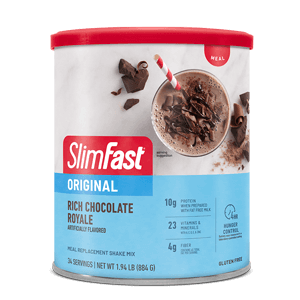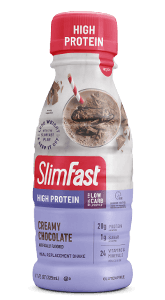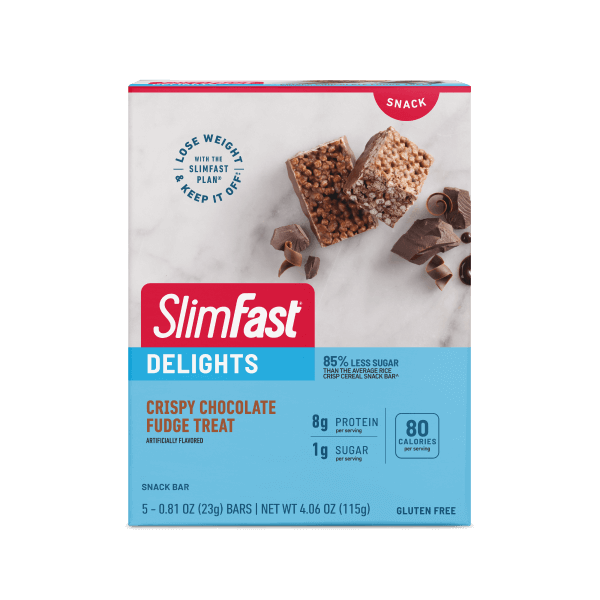Stress and anxiety can disrupt our daily lives and routines. From sleep to how our immune system responds, it’s important to find a good balance between what you fuel your body with and how you treat it. Registered Dietitian and SlimFast Plan Consultant, Maryann Walsh shares her wisdom.

Unfortunately, stress and anxiety can affect your ability to fall and stay asleep. Adequate sleep has been shown to support immune function1 and also has been linked to better regulation of appetite and weight maintenance2. Below are five tips that you may find helpful for getting a good night’s sleep!
- Maintain a regular sleep schedule.
- Avoid taking naps during the daytime or make sure to keep your naps short.
- Be active during the day.
- Be wary of sleeping too much.
- Take a break from electronics.
Try to go to bed and wake up at the same time each day. To help, try setting an alarm an hour before you go to bed as a reminder to wind down, and to reduce the amount of stimulation your brain is getting from the television, computers, phones, etc.
While some individuals may find a short power nap to be a refreshing boost to their energy levels, others may find it can seriously hinder their ability to fall asleep at night. Research suggests that while short naps may be beneficial for some populations, for others, especially the elderly, it may lead to sleep disturbances and other issues.3 Make sure to be conscious of how napping affects your sleep routine and opt for alternatives like drinking a cold glass of water or going for a brisk walk.
Get outside for a nice walk or utilize the thousands of free online resources to find ways to exercise at home! You’ll not only reap the benefits of exercise for your health and well-being but may also find it that much easier to fall asleep when bedtime rolls around.
While it’s important to get adequate sleep, too much sleep has been linked to excessive fatigue as well as cognitive impairment.4 Find your sweet spot for the hours of sleep that make the most sense for you.
Turn down the lights, turn off the TV, put the phone away and allow your mind to relax. Try setting an alarm to remind you that it’s time to start winding down and relaxing.
- https://www.ncbi.nlm.nih.gov/pmc/articles/PMC3256323/
- https://www.ncbi.nlm.nih.gov/pubmed/18239586
- https://www.ncbi.nlm.nih.gov/pmc/articles/PMC4165901/
- https://www.health.harvard.edu/blog/little-sleep-much-affect-memory-201405027136
ABOUT MARYANN
A consultant of The SlimFast Plan, Maryann is a Registered Dietitian with Bachelor of Science degrees in Biological Sciences and Dietetics and a Master of Food and Nutrition. She has extensive experience working with clients of all ages and from all walks of life, helping them to achieve their wellness and weight-loss goals. Learn more about Maryann.




